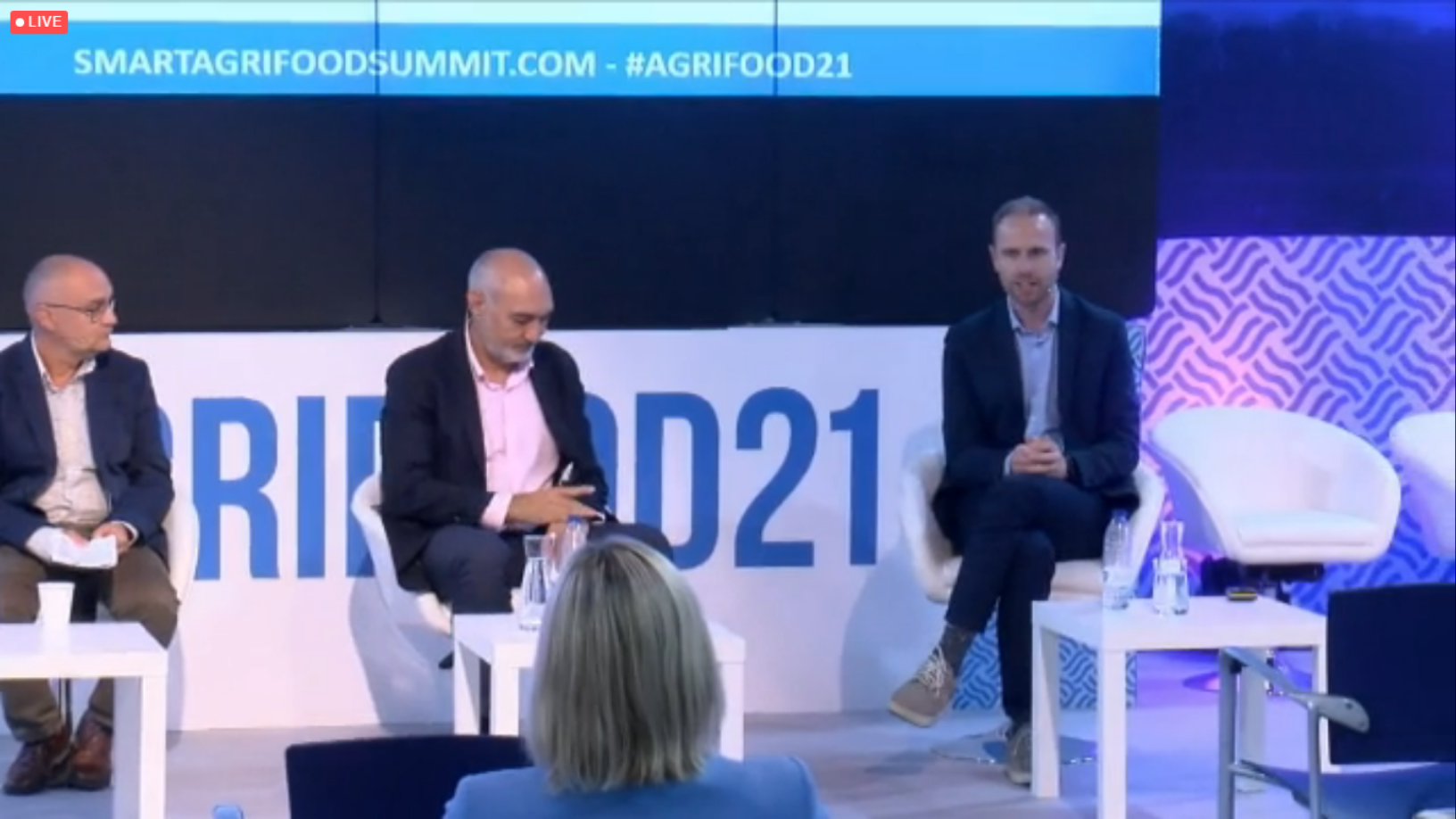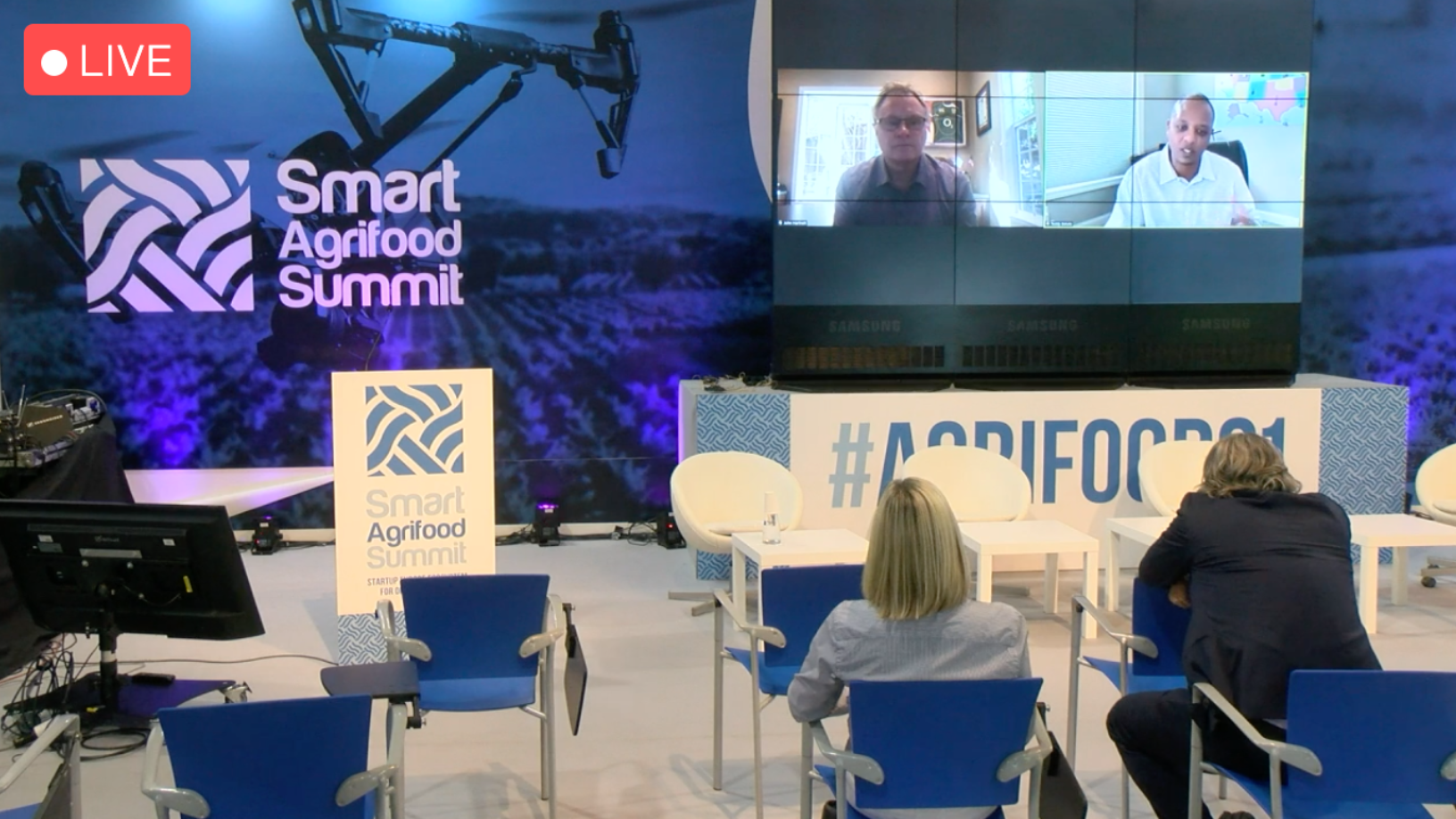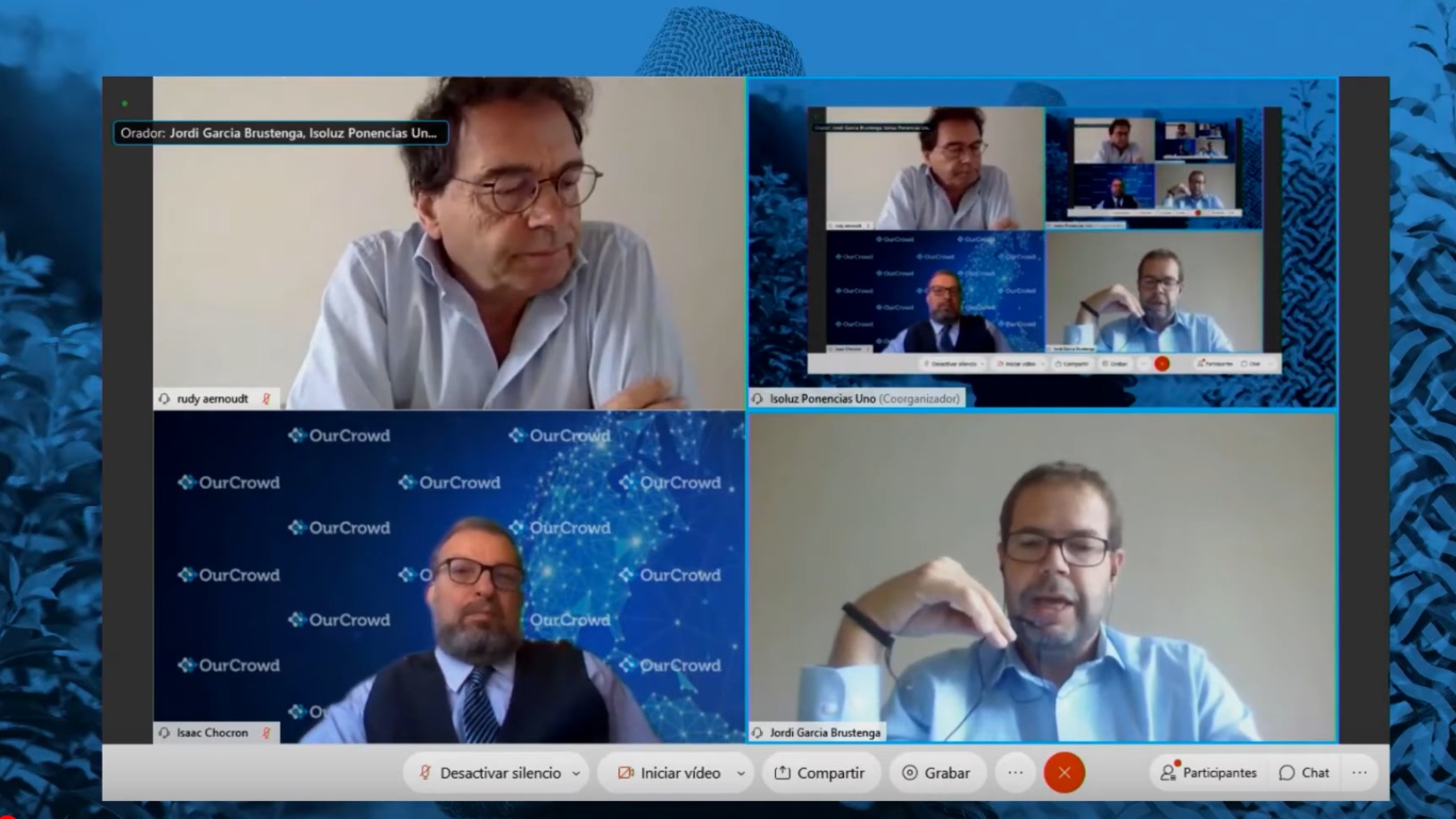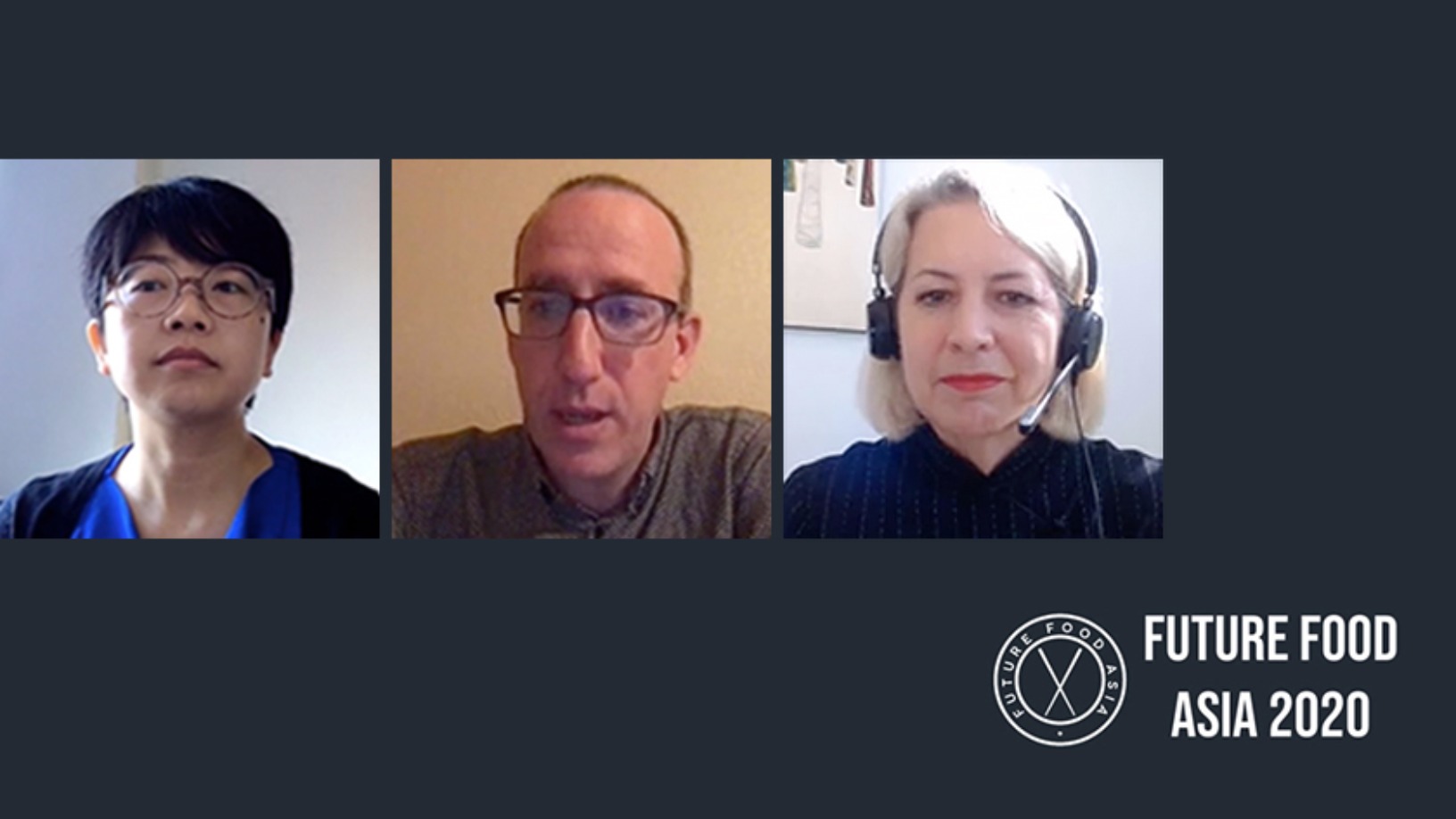Global collaboration in agritech innovation and boosting investment were recurring themes underpinning debate at the Smart Agrifood Summit in Malaga, Spain, last week. One panel, “Investment and Financing in the Field of the Innovation and Digital Transformation of the Agrifood Sector,” was wholly dedicated to the subject, with VCs and CVCs from around the world debating current and future trends and needs.
The panelists included Danny O’Brien, Managing Director for Europe and the Middle East at THRIVE Agrifood accelerator, part of SVG Ventures, the most active agritech investor in the world with more than 5,000 startups from 100 countries funded since 2010. THRIVE Agrifood is currently seeking startups for both its upcoming Silicon Valley and Canada cohorts.
Also present were Carlos Ignacio Franco Alonso, Technical Advisor of The Centre for the Development of Industrial Technology in Spain; Gonzalo Martínez de Azagra, General Partner and co-founder of Spanish VC Cardumen Capital. Cardumen is also a traditional deeptech funder that is Spain's largest investor in Israel and is planning its first agritech fund.
Another panelist was Preston Zhang, Executive Director, Corporate Development, of Pinduoduo, China's largest online grocer and agrifood platform, which in 2020, connected around 16m farmers to over 850m consumers in China and sold approximately $42bn worth of agricultural produce. The discussion took place October 1, and was moderated by Antonio Fernandez Ruiz, CIO of the procurement platform Fullstep and Spanish generalist VC Cupido Capital.
The following discussion has been edited for length and clarity.
Antonio Fernandez Ruiz: Could you give us details of your investment policy?
Danny O’Brien: When we review startups for our accelerator or for investment, there are five key areas that we look for. First is the team, i.e., who is going to solve the problems – that's the most important factor in our eyes. Secondly, large market size. The third thing is the business model and how it attacks the market.
We also then consider traction as well, future or current. The other key area that's becoming more and more important is sustainability. We need forward-thinking technologies that can solve some of the biggest issues that the world faces today. We've built that into our core thesis of what we look for at the moment.
Gonzalo Martínez de Azagra: We invest in technologies that serve a lot of industries: artificial intelligence, big data, machine vision and cybersecurity. Our aim is to create a tech transfer policy between Israel and Spain, but also between producers and innovators, and between innovators and companies that can provide scale.
Preston Zhang: From day one, agriculture has always been the focus of our strategy. One is because agriculture is a huge sector in China, with a market size of over $1.2tn. At the same time, it has one of the lowest digitization rates, probably around 8–9%, compared with 20–30% or higher for other sectors. We are always thinking about how we can use technology to help consumers obtain cheaper prices and, at the same time, help farmers sell their produce to more consumers across China.
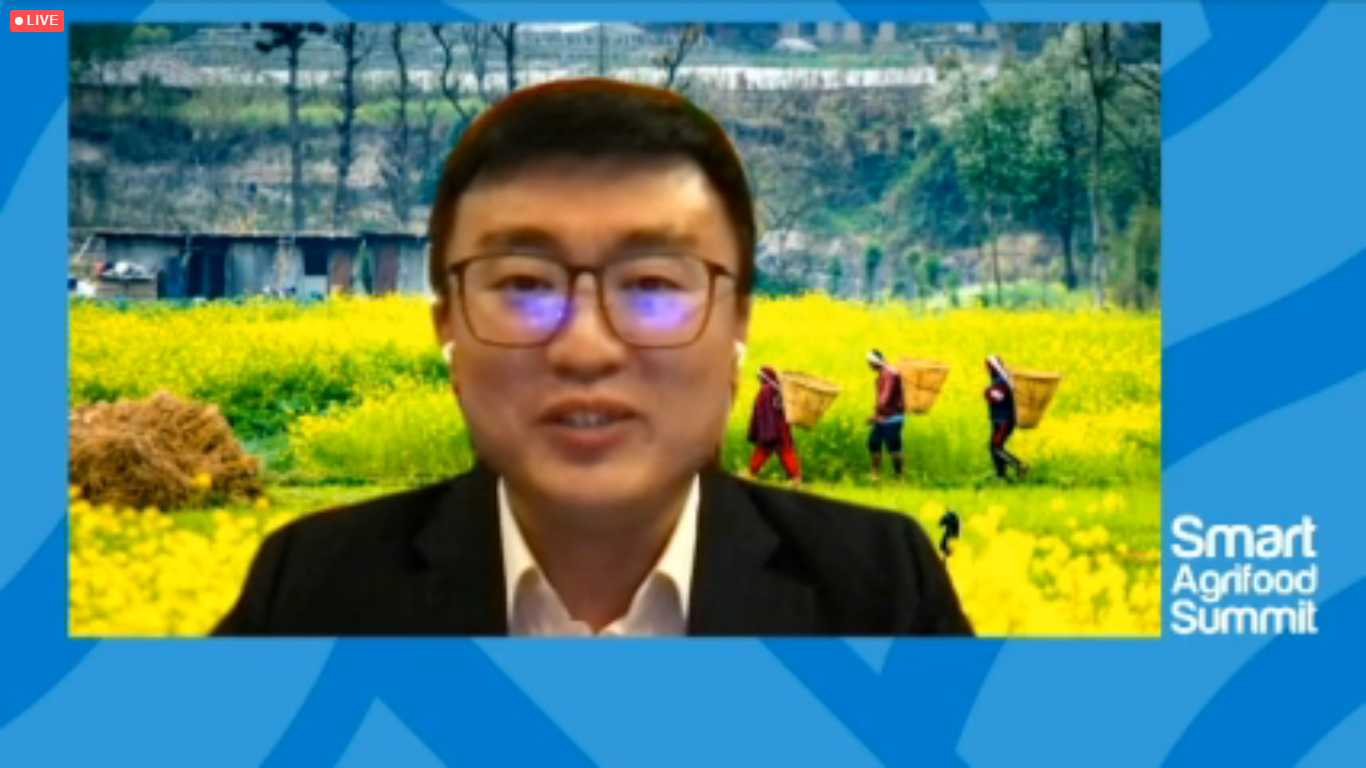
Today we are investing across the whole agrifood value chain, starting from downstream, in China and across the world. At the same time, we are investing in the mainstream.
One of the key results of the low digitization rates is that consumers don't really have the insights or transparency on how their food has been produced and delivered. So, we need to leverage technology to improve that transparency, so that the entire digitization rate for the agriculture sector can be improved.
There's one initiative that we launched, which enables localized supply and demand matching of agri-products, allowing consumers to receive their orders within 24 hours. The upstream side of things seems far away from what we are doing at the moment, but because we are connected to 16m farmers, we shoulder the responsibility of identifying more advanced agriculture technology to help them to improve their farming, and make it more sustainable.
O’Brien: The challenges are from farm to fork, there are so many big challenges across the whole value chain that we need solutions for, and that's the same no matter what country you're in, whether it's China, Europe or the US or anywhere else.
Fernandez Ruiz: What are some of the most interesting verticals in agrifood tech for investment right now?
O’Brien: I think it's important to look at the macro drivers like consumer preferences. More and more people want to eat more sustainably and animal welfare is important. Alternative proteins are a big driver at the moment because of consumer preferences.
Another driver is Covid. I would say that's changed a lot for the agrifood sector. Migrant workers aren't allowed to move around and there are labor shortages in the US and Europe so that's given rise to a lot of robotics solutions to replace the workers who were previously there.
And then another key driver is anything that can do things more sustainably – alternative solutions like bio-pesticides, bio-fertilizers; carbon sequestration is a huge area at the moment. We're looking for deals all the time in those areas.
Fernandez Ruiz: How important are artificial intelligence and computer vision?
Martínez de Azagra: We look at very applied technology that works in many industries, like machine vision, next-generation cameras that can give you information on crops on your smartphone. Israel is traditionally very strong in agritech. In Spain, agrifood is a major industry in terms of percentage of GDP, employment and exports. Right now, we have PERTE [Proyectos estratégicos para la recuperación y transformación económica, which are Spanish state funding programs for economic recovery and transformation], a €1bn program in agrifood and this is a fantastic opportunity for the industry to do a step change to digitalize, and bring technology that right now is not there.
If it wants to be competitive, Spain (and Europe) has to innovate in a big way and create an agritech or an agrifood innovation ecosystem, and attract people like Preston [Zhang of Pinduoduo] Danny [O’Brien of SVG Ventures/THRIVE] and others.
Spain also needs a program to attract foreign investment, not only for production, but also for innovation, like Israel has done. Right now investment has mostly been about upgrading infrastructure but innovation is the key to the future competitiveness of this industry.
Fernandez Ruiz: What do you think will be the most interesting trends in the coming years?
Zhang: We definitely need global collaboration. The agrifood system is not something that's purely local, there's a lot of interdisciplinary and also cross-global effort needed in order for certain value chains to actually make the changes. This will help the entire value chain to become more sustainable.
It's definitely important for us to learn from across the world and collaborate and for new standards. We are working with research institutes to study the potential health impacts of plant-based alternative protein on humans.
On the mainstream side of things, we are working with research institutes to find the best technology for a portable device for pesticide residue detection, so logistics service providers or merchants can quickly test how vegetables and fruits are produced, how much pesticide is used, and how much residue is still left over.
If we can digitize the entire process, that can actually offer the consumer more transparency so, last month, we pledged RMB10bn, roughly $1.5bn, into agritech digital inclusion, and technology for empowering farming communities.
O’Brien: Changing supply chain resiliency. In the past, it was designed for just-in-time delivery. We saw in the Covid pandemic that got disrupted, and as soon as things changed, there were food shortages and crops rotting in the fields.
The old way of doing things isn't going to be the way of the future. You're going to see a lot more supply chain resiliency built in; and data AI and machine learning, predictive algorithms will help with that. You're also seeing more localized supply chains, like in the Middle East. Many countries there import about 95% of their food, and so vertical indoor farming is becoming a big trend there, to avoid supply shocks.
Fernandez Ruiz: What about the trends in the next year?
Martínez de Azagra: We need to look at the future, but we need to look at the present too. The agrifood industry as one that is behind in applying technology to the business. The first step is digitalization and that should be applied to the whole industry, the whole value chain, to each step of the value chain, from upstream to downstream. Otherwise, we cannot implement everything else. I think we need to be realistic. We need to innovate in processes, in business models, in things that make the industry more efficient.
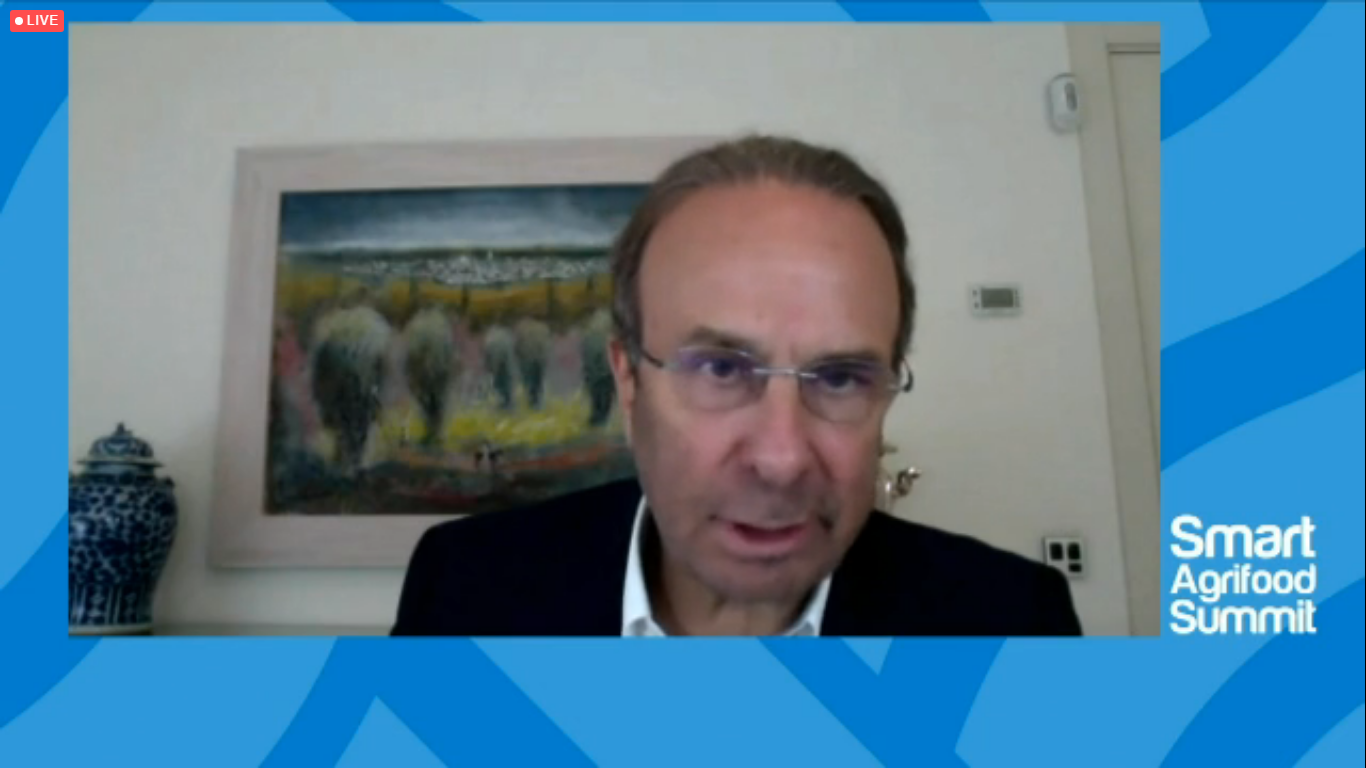
Everything else we can build on top of that. One other thing is that many people do not understand that, in the private sector, the only financial institution that can fund innovation is venture capital, because the other non-private financial institutions are not well equipped to finance innovation.
Another is creating tech transfer between big and small corporations. Either we develop an ecosystem for agrifood, or we will take many more years to get to the level of other industries. The technology is here; we need to make it easy to apply it across the sector.
O’Brien: The growing power of a global network. We have about 60 investments today; 70% of our deal flow comes from outside the US so agrifood tech is really a global problem. But solutions are global as well. We also have about 40 corporate clients in many parts of the world and it's important to bring people together at conferences like this.
